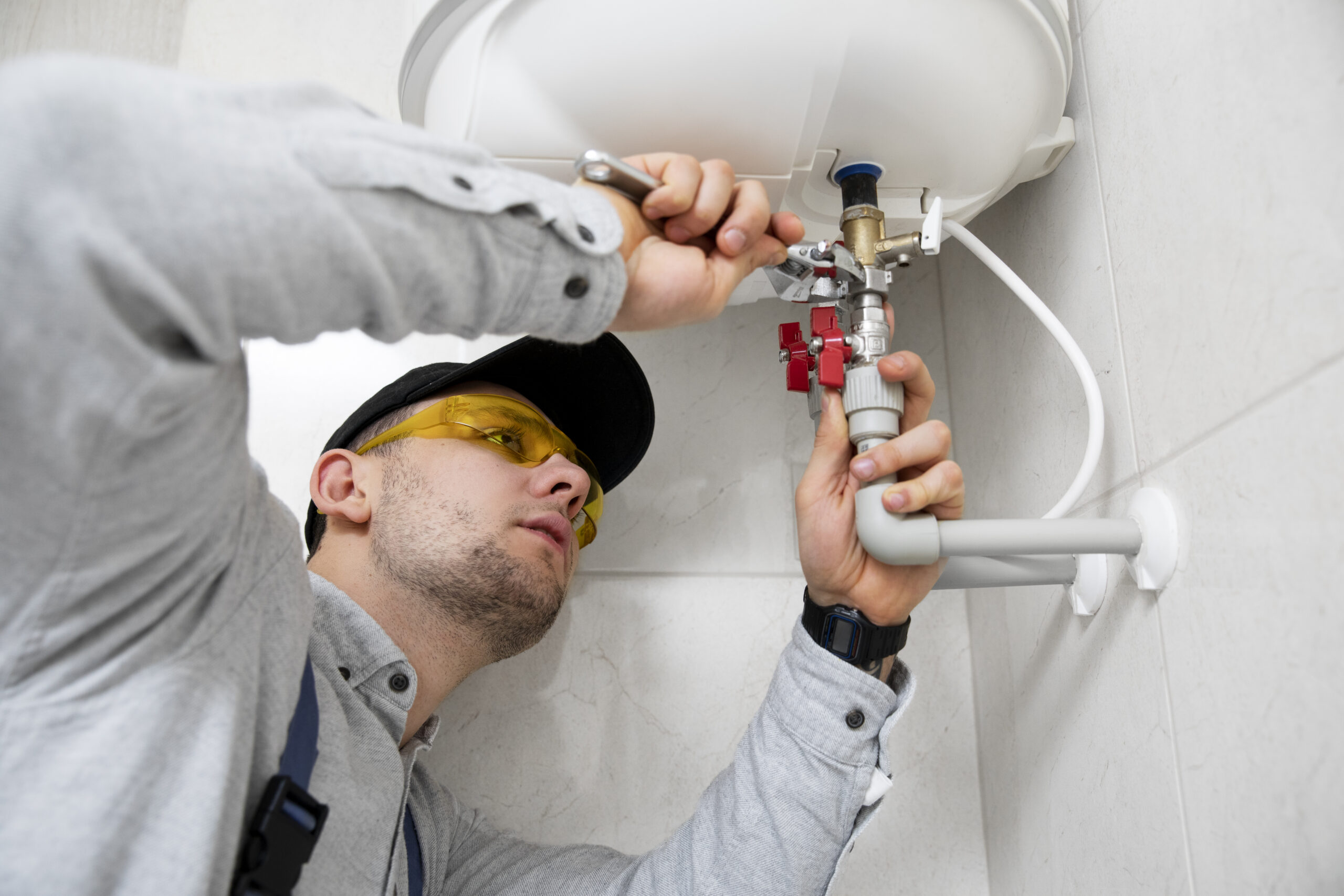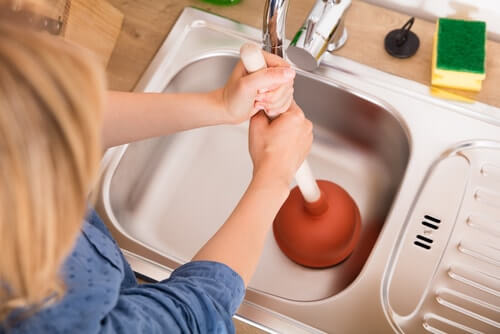What are your thoughts and feelings about What to Do While Waiting for an Emergency Plumber?

Pipes emergency situations can strike at any time, triggering anxiety and prospective damages to your home. Whether it's a ruptured pipeline, a blocked drainpipe, or a dripping tap, recognizing how to handle the situation up until an expert plumbing technician gets here can conserve you from further problems. This short article supplies necessary emergency pipes tips to assist you reduce damage and restore control throughout a plumbing crisis.
Turn Off the Supply Of Water
The initial step in any type of plumbing emergency is to turn off the supply of water. For localized issues, such as a leaking faucet or toilet, turn off the shutoff near the component. When it comes to a major leak or burst pipe, locate your home's major water shut-off shutoff and transform it off quickly. Understanding the place of these valves beforehand can save beneficial time throughout an emergency situation.
Address Little Leaks with Short-term Solutions
Tiny leakages can swiftly become substantial issues if left unattended. Make use of these momentary repairs until professional help gets here:
While these fixes aren't permanent, they can assist reduce water loss and damages.
Unclog Drains Securely
A blocked drain can be a discouraging and messy concern. Right here's how to tackle it:
If these approaches don't function, avoid using too much force, as it may aggravate the clog.
Handle Overflowing Toilets
An overruning bathroom can create instant disorder. Here's what you ought to do:
Shut down Your Water Heater
In certain emergency situations, such as a ruptured pipeline, it's a good idea to turn off your hot water heater. This protects against overheating or damage to the system when water quits moving. Switch off the power supply to the water heater (electrical or gas) and let it cool off to stay clear of potential hazards.
Briefly Quit a Ruptured Pipe
A burst pipeline can bring about significant water damage in minutes. To minimize the issue:
Call a professional plumbing promptly to resolve the trouble completely.
Take Care Of Frozen Pipes Carefully
In colder climates, frozen pipes are a typical emergency. If you think a frozen pipe:
Stop Additional Damage
Taking fast action to minimize damages can save you time and money in the future. Right here's how:
. Have an Emergency Situation Plumbing Kit
Prepare a standard plumbing emergency kit to deal with minor problems effectively. Your set should consist of:
Having these devices handy can make a substantial difference in your ability to handle emergencies.
Know When to Call a Specialist.
While quick fixes can help temporarily, particular plumbing problems call for immediate specialist attention. Call a plumber if:.
Quickly calling an expert ensures the issue is solved correctly and stops more complications.
Final thought.
Pipes emergencies can be frustrating, yet with the best knowledge and tools, you can take care of the situation efficiently up until aid arrives. By turning off the water system, addressing small leaks, and using momentary solutions, you can minimize damage and keep your home safe. Bear in mind, these pointers are short-term services; constantly get in touch with a licensed plumbing to manage the origin of the trouble. Prep work and quick thinking are your ideal allies in any plumbing emergency.
8 Helpful Tips for Managing Plumbing Emergencies at Home
If your plumbing system hasn’t failed once, wait for it because almost everyone has a story to tell. Sometimes, it could be simple emergencies such as a leaking pipe, a blocked cistern, or even a big burst pipe. In situations like this, you need to have some handy tips to save you some money and from possible damages.
Take care of minor issues early.
Sometimes, you could have avoided an emergency by taking proactive measures while it was still early. Some major plumbing emergencies can be a result of an ignored minor issue. We recommend that you have items like plumbing tapes and other related items. A plumbing tape can allow you to manage minor leaks before the plumber arrives.
Cut off the water supply.
This tip is essential in almost any type of leakage problem. For problems like minor leakages in the toilet or kitchen, turn off the supply that takes water to the affected pipes. If the leakage is a major pipe, you must shut off the supply valve to the entire building. This will help you avoid flooding your home and neighbors if you share a flat.
Know your plumbing system
Folks typically move into a new apartment without understanding the water supply around the building. This can prove disastrous if a water emergency arises and the plumber is far away. The previous tip will prove useless if you don’t practice this one. More importantly, know where your water shut-off valve is located – you’ll need that knowledge to prevent potential home floods.
Have some common handy tools
There are lots of plumbing emergencies that you can handle without hiring a plumber. That’s why you must keep some tools available always. Some tools that you can use to fix simple plumbing emergencies easily include plumbing tapes, screwdrivers, thread seal tapes, plungers, pliers, tape measures, and rubber gloves.
Insulate your pipes from cold
You’ll save yourself from many plumbing expenses if you protect your water pipes from the cold. This is because of the harmful effects that cold weather can have on your pipes. During winter, your pipes can burst from being overly expected to freezing temperatures. So, make sure insulators are there to keep the pipes working correctly.
Avoid practices that will clog your toilet.
Many people indulge in practices that can damage the plumbing system of the entire building. One of these is when they use their toilet to dispose-off garbage. They flush all kinds of things, such as paper towels, bandages, hairs, female sanitary products, etc., down the toilet. This will block your toilet in the long run, incurring unnecessary expenditures. Dump such waste in the trash instead.
Check your dials regularly.
Sometimes, there could be leakages in your home without noticing them in time. So, constantly monitor your water meter dial. If the dial is reading when there is nobody using water, this is an indicator that there is leaking. Check for leaks immediately. Call a plumber as soon as possible if you can’t find any.
https://www.constructionplacements.com/8-helpful-tips-for-managing-plumbing-emergencies-at-home/

I found that write up on Plumbing Emergencies: Tips on What To Do Before when browsing on the web. In case you enjoyed our page if you please be sure to pass it around. Kudos for being here. Come back soon.
Call Today